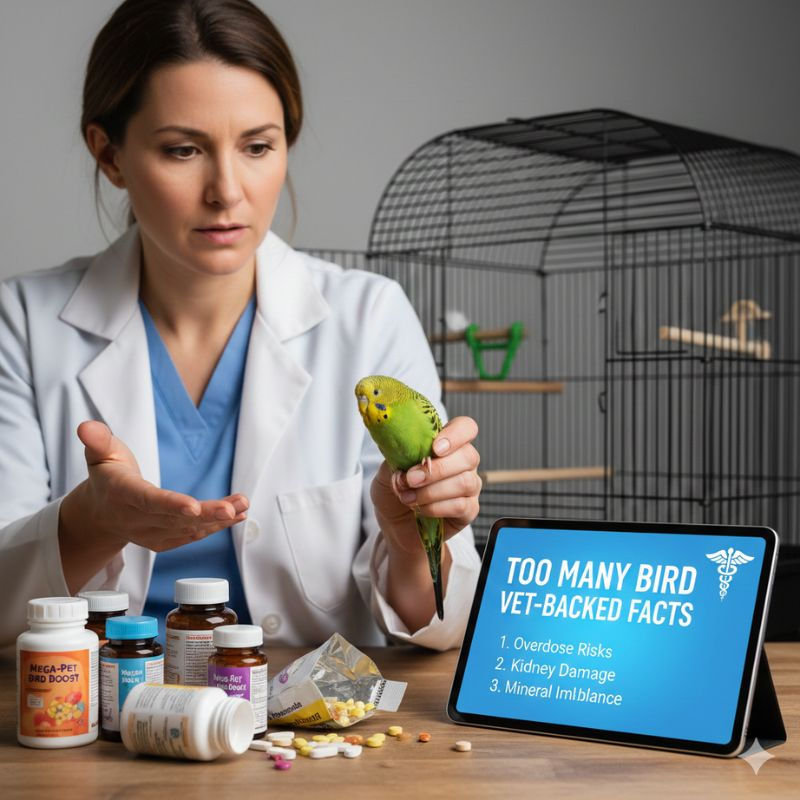Top 5 Supplements Every Reptile Needs in Their Diet
- petperchlove
- Apr 2, 2025
- 3 min read

Providing the right nutrition is essential for the health and longevity of reptiles. While high-quality reptile food forms the foundation of their diet, it often lacks certain vital nutrients. This is where supplements come into play. Whether you own a bearded dragon, gecko, or any other pet lizard, incorporating the right supplements can prevent health issues like metabolic bone disease, vitamin deficiencies, and digestive problems.
In this comprehensive guide, we will discuss the top five supplements every reptile needs, ensuring a well-balanced and nutritious diet.
1. Calcium Supplements
Why Calcium is Important
Calcium is one of the most critical nutrients for reptiles, especially for species that require UVB light for proper calcium metabolism. Without sufficient calcium intake, reptiles are prone to metabolic bone disease (MBD), weak bones, and deformities.
How to Provide Calcium
Calcium Powder (Without D3) – Best used for reptiles that receive adequate UVB lighting.
Calcium Powder (With D3) – Essential for nocturnal reptiles or those that do not get enough UVB exposure.
Natural Sources – Gut-loaded feeder insects, leafy greens, and cuttlebone can provide additional calcium.
For pet owners looking for high-quality calcium supplements, Kwik Pets offers a variety of reptile calcium powders that ensure your pet receives the necessary nutrients.
2. Vitamin D3 Supplements
Importance of Vitamin D3
Vitamin D3 helps reptiles absorb and utilize calcium effectively. Without it, even calcium-rich lizard food won’t be beneficial. Reptiles that don’t get sufficient UVB light need dietary vitamin D3 to prevent bone-related diseases.
Best Ways to Provide Vitamin D3
Dusting feeder insects or food with a vitamin D3 supplement.
Using reptile-specific UVB lighting to help natural D3 production.
Monitoring D3 levels to avoid toxicity, as excess amounts can lead to health problems.
3. Multivitamin Supplements
Why Multivitamins Matter
Multivitamins ensure that reptiles receive essential nutrients that might be missing in their primary diet. These vitamins help with skin shedding, immune function, and overall well-being.
Best Multivitamin Sources
Reptile-Specific Multivitamin Powders – These contain a blend of essential vitamins and minerals.
Natural Foods – Some fruits, vegetables, and gut-loaded insects can provide additional vitamins.
Many multivitamin products from Kwik Pets are formulated specifically for reptilian needs, ensuring optimal health.
4. Probiotics for Digestive Health
Why Probiotics Are Important
Probiotics help maintain a healthy gut flora, which is crucial for digestion and nutrient absorption. Reptiles, especially those on a processed or unnatural diet, can benefit significantly from probiotic supplementation.
Best Probiotic Sources
Reptile-Specific Probiotic Powders – These contain beneficial bacteria that aid digestion.
Gut-Loaded Feeder Insects – Feeding your reptile pre-fed insects with natural probiotics.
Adding probiotics to pet lizard food can help reduce digestive issues and improve overall gut health.
5. Omega-3 and Omega-6 Fatty Acids
Benefits of Omega Fatty Acids
These essential fatty acids help maintain healthy skin, reduce inflammation, and support heart and brain health in reptiles.
Best Sources of Omega-3 and Omega-6
Reptile-Specific Omega Supplements – Found in liquid or powder form.
Whole Prey Items – Such as feeder fish or insects with high omega content.
Certain Vegetables – Like dark leafy greens.
Using high-quality reptile food enriched with omega-3 and omega-6 can ensure your pet’s diet is well-rounded and nutritious.
Final Thoughts
Providing proper supplements is crucial to ensuring your reptile lives a long and healthy life. By incorporating calcium, vitamin D3, multivitamins, probiotics, and omega fatty acids into their diet, you can prevent common health issues and enhance their well-being.
When choosing supplements, always opt for high-quality products from reliable sources like Kwik Pets, ensuring your pet gets the best nutrition possible. Pairing the right supplements with high-quality reptile food and proper care will keep your pet thriving for years to come.
FAQs
1. How often should I give calcium supplements to my reptile?
The frequency of calcium supplementation depends on your reptile’s species. In general:
Juvenile reptiles: 4-5 times per week
Adult reptiles: 2-3 times per week
Egg-laying females: Daily supplementation is recommended
2. Can I use human vitamins for my reptile?
No, human vitamins contain different concentrations and additional ingredients that may be harmful to reptiles. Always use reptile-specific supplements available from trusted sources like Kwik Pets.
3. Do all reptiles need vitamin D3 supplementation?
No, reptiles that receive adequate UVB lighting can produce their own vitamin D3. However, nocturnal species and those without access to UVB light require dietary vitamin D3 supplementation.
4. How do I ensure my reptile is getting enough probiotics?
You can mix probiotic powder with their food or use gut-loaded feeder insects that contain natural probiotics.
5. Can supplements replace a well-balanced diet?
No, supplements are meant to enhance and complete a diet, not replace natural foods. A well-balanced diet with high-quality pet lizard food is essential, with supplements used as needed.



Comments